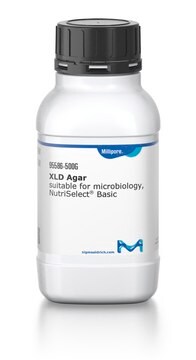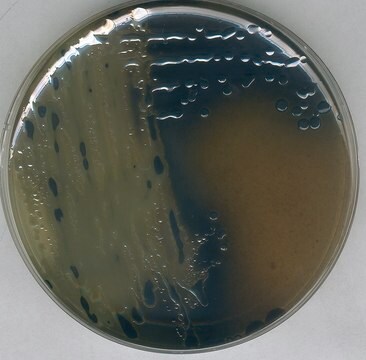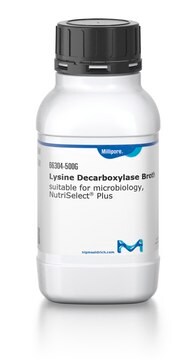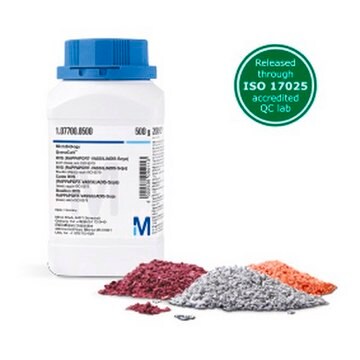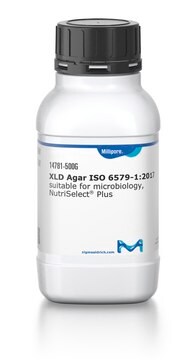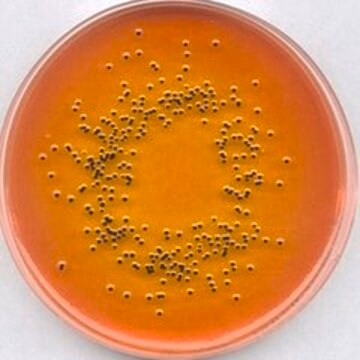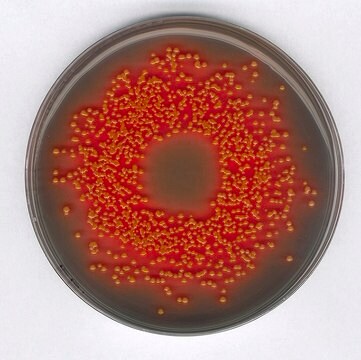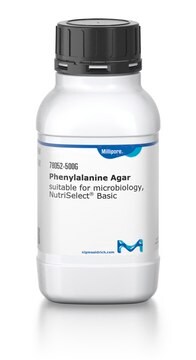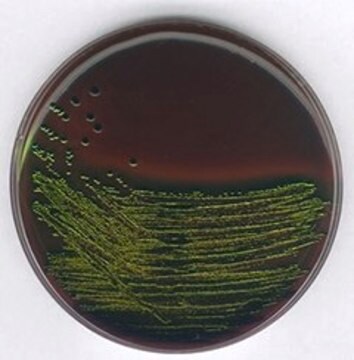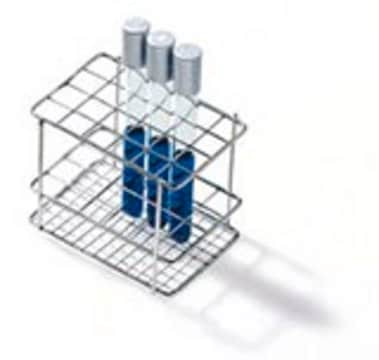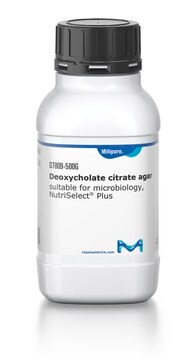95388
Bismuth sulfite Agar
suitable for microbiology, NutriSelect® Basic
About This Item
Produits recommandés
Agence
according to GB 4789.4-2016
Niveau de qualité
Stérilité
non-sterile
Forme
powder
Durée de conservation
limited shelf life, expiry date on the label
Composition
agar, 15 g/L
bismuth ammonium citrate, 1.85 g/L
brilliant green, 0.025 g/L
disodium hydrogen phosphate, 4 g/L
D(+)-glucose, 5 g/L
iron(II) sulfate 7x H2O, 0.55 g/L (equivalentto 0.3g/L iron(ll) sulfate water free)
meat extract, 5 g/L
mixed peptone, 10 g/L
sodium sulfite, 6.15 g/L
Fabricant/nom de marque
NutriSelect® Basic
Technique(s)
microbiological culture: suitable
pH final
7.6±0.2 (25 °C)
Application(s)
clinical testing
environmental
food and beverages
microbiology
Adéquation
selective and differential for Salmonella spp.
Catégories apparentées
Application
The prepared agar is turbid and greenish-yellow.
Notes préparatoires
Note de bas de page
The designations basic, plus, or prime are added to indicate the quality control level, from basic quality control to standard QC plus to prime for full regulatory compliance.
Informations légales
Mentions de danger
Conseils de prudence
Classification des risques
Aquatic Chronic 3
Risques supp
Code de la classe de stockage
11 - Combustible Solids
Classe de danger pour l'eau (WGK)
WGK 3
Point d'éclair (°F)
Not applicable
Point d'éclair (°C)
Not applicable
Équipement de protection individuelle
Eyeshields, Gloves, type N95 (US)
Faites votre choix parmi les versions les plus récentes :
Déjà en possession de ce produit ?
Retrouvez la documentation relative aux produits que vous avez récemment achetés dans la Bibliothèque de documents.
Les clients ont également consulté
Articles
Salmonella contamination is the second leading cause of food-borne illness worldwide. Controlling outbreaks of Salmonella is an important task for food regulators, restaurants and the food industry in general. The Salmonella family includes over 2,300 serotypes of bacteria, but two types, Salmonella enteritidis and Salmonella typhimurium, are responsible for about half of all human infections. Most outbreaks of Salmonella are traced back to dairy, poultry and meat products, but Salmonella can grow on nearly any food. Chicken, eggs and their derivative products are particularly high risk.
Notre équipe de scientifiques dispose d'une expérience dans tous les secteurs de la recherche, notamment en sciences de la vie, science des matériaux, synthèse chimique, chromatographie, analyse et dans de nombreux autres domaines..
Contacter notre Service technique